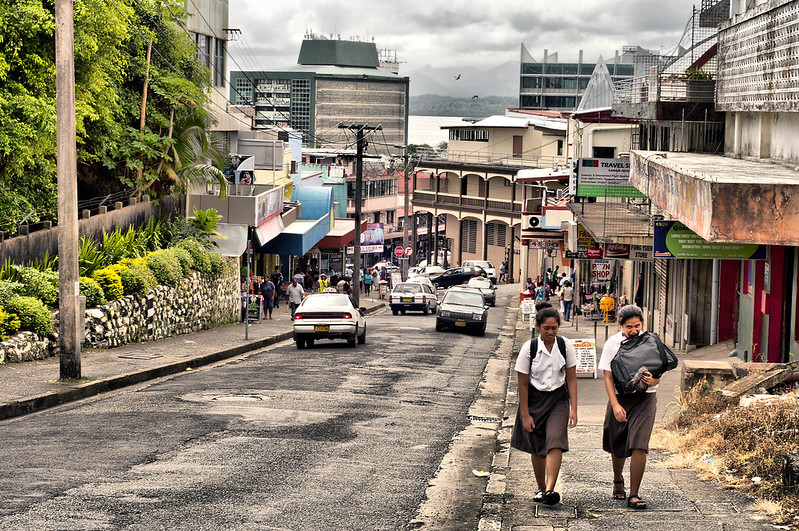Women in Fiji: Gender Wage Gap
 Women in Fiji experience disparities compared to men. Among these hindering challenges lie the women’s critical earned income rights and segregated employment opportunities. For example, in February 2024, only 9.1% of women served in the country’s legislature. In addition, about 13.9% of girls, ages 15 and older, work unpaid, fulfilling more household work than men. The country ranked 107th out of 146 countries for its gender gap.
Women in Fiji experience disparities compared to men. Among these hindering challenges lie the women’s critical earned income rights and segregated employment opportunities. For example, in February 2024, only 9.1% of women served in the country’s legislature. In addition, about 13.9% of girls, ages 15 and older, work unpaid, fulfilling more household work than men. The country ranked 107th out of 146 countries for its gender gap.
Battling Inequality
Gender inequality has been a hot topic within societal norms and traditions. The World Bank issued a report stating that women in Fiji spend 2.9 times more than men on household work. A traditional female role is to provide for the family and domestic responsibilities like cooking and cleaning. Women possess full inheritance and property rights under law; however, local city governments dispose of their decisions on collective land.
A group of 56 women founded The Women’s Rights Movement of Fiji (FWRM) in 1986. Over the years, the movement pushed for legislation in Fiji. The implementation of the Family Law Act and the Employment Regulations Act upheld the FWRM campaign in 2005.
The FWRM are known for their two main active programs: the Gender and Transitional Justice Program (GTJ) and the Intergenerational Women’s Leadership Program. Enhancing democratic recognition and the rule of law for women’s rights is the goal of the GTJ. This is positioned between right holders and responsibility bearers. The Intergenerational Women’s Program focuses more on women’s health and female leaders in high leadership roles.
Empowering Women in Fiji
GlobalGiving is a charitable organization that aims to focus on women’s empowerment through community service and project collaborations. It opens up workshops on gender gap-related issues. Since 2002, the organization has funded $1,026 million from almost 2 million donors or volunteers. The number of projects expanded to more than 40,000 in more than 175 countries around the world. They estimated 96 million citizens will live on the poverty brink by 2021.
After the COVID-19 pandemic, the dilemma grew more challenging. Its long-term goal was the launch of GlobalGiving’s empowerment programs, which ask for volunteers to help or lead women empowerment service projects. These projects range from play activities for children, women’s health plans, and community networks where women and grandparents can share stories.
Future Restorations
The gender wage gap continues to be a barrier, with women in Fiji earning lower wages and being significantly underrepresented in positions of leadership. The burden of unpaid caregiving duties that women bear limits this difference. This restricts the prospects for financial growth. But the groundwork of women’s rights has been laid. Through their reliable lobbying techniques, the women’s rights movement in Fiji has overturned discriminatory laws and regulations. Health education, skills-based training, and community development all received aid from GlobalGiving charity programs. These give women the knowledge they need to grow. Closing the gender wage gap requires persistent advocacy and ongoing funding for these organizations.
– Janae Bayford
Janae is based in Centennial, CO, USA and focuses on Good News for The Borgen Project.
Photo: Flickr
